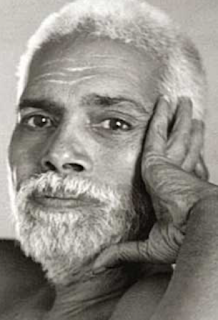From “Illuminating Silence”, Sheng YenMany people are confused in thinking that enlightenment as a state implies some continuing ecstasy of bliss and awareness such as may be experienced in kensho [Japanese, “seeing one’s nature”, ie, initial enlightenment experience]. This does not appear to be a correct understanding. The fully enlightened practitioner may be said to be ‘one who lives from a perspective of a wisdom-understanding which functions without ego concern under all circumstances’. Such a realized person lives normally in the world, simply lacking habitual self-concern. He or she will have a mirror-like quality in which others see themselves, rather than seeing the reactivity of ego in the one before them. A brief enlightenment experience may be the origin of such a condition but the majority of such experiences are not followed by the persistence of an enlightened state; rather selfish vexations return but with a reduced vigor. It may be that some individuals develop a capacity to generate the experience of selfless bliss, others may find themselves there more frequently, but for most the condition is a short-term blessing. Since the experience does not ensure the emergence of the state of being an enlightened person, further practice is the essential norm.
Yet there is another way of envisaging this condition, not so much as ‘an’ experience, but more as a form of knowledge. In the Caodong [Japanese: Soto Zen] tradition, enlightenment is said to be no different from practice. This view focuses on the meditative fading away of categorisations of all kinds, time, space, self, until a residual nothingness is discovered in which everything is nonetheless mirrored. Such an approach does not, therefore, emphasise the sudden experiential, revelatory aspect of enlightenment, but rather the discovery of an underlying condition of mind implicitly always present. To know this state is thus more a type of knowing than an experience of insight of limited duration. Some may argue that this Caodong approach is the more mature perspective and it is the deep view of Silent Illumination.
Anyone who has ‘seen the nature’ is unlikely to claim to be an enlightened person, even when a master has confirmed the experience; he or she simply knows what a glimpse of enlightenment entails. Indeed, anyone claiming to be enlightened is probably acting erroneously from an inflated ego, which a teacher has been unable to contain. Simple humility alone will normally prevent any such claim. People may consider another person to be ‘enlightened’ on observing an exceptional being who seems truly to have transcended the vexations of this world. It is doubtful whether there are more than a handful of such persons alive in any one generation. Some may become great lamas, masters, or teachers; others may remain entirely unknown, except perhaps to a few. 🕊






